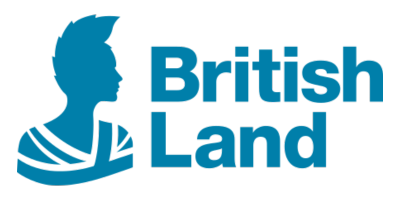Green Skills Lab: British Land
Green Skills Lab: British Land
British Landis one of the largest commercial property companies in the UK, creating world-class office spaces and retail property, with a growing focus on London urban logistics and science and technology. The company’s purpose – Places People Prefer – is to deliver positive outcomes for all stakeholders on a long-term and sustainable basis.

The issue
Supporting social mobility is a priority at British Land. During the Green Skills Lab, the organisation wanted to ensure that its social impact strategy supported communities within and close to its assets to allow access to the range of employment opportunities created by a transition towards a net zero economy.
What the company did
With 20 years of experience working on environmental and social progress, British Land has established social impact partnerships, which it plans to build on. The organisation supports meaningful education partnerships to promote social mobility and support people at all stages to grow skills. Programmes to upskill people to support curriculum learning, grow a local talent pool, raise awareness of careers and support young people at risk. The organisation also develops employment partnerships which support people local to their assets to access training and job opportunities. This helps secure the talent that the business, its suppliers, customers and communities need to thrive.
Examples of existing partnerships include Broadgate Connect, British Land’s employment and training partnership with East London Business Alliance (ELBA), which has supported hundreds of jobseekers, giving them access to jobs within the company, and with partners and service providers, covering relevant and necessary roles. The organisation is also a long-term supporter of the National Literacy Trust, with literacy partnerships focused on young people in both primary and secondary education.
British Land saw an opportunity to adapt its existing approach to education and employment programmes to further support the development of green skills and access to green opportunities. It mapped the essential skills supported by its partnership and identified opportunities to add a green skills element to several projects. The green skills element identified varied between projects, from the provision of resources focused on green jobs, to the development of tasks which required specific green skills thinking, to real life reflections from people currently working in green roles.
The organisation is also undertaking mapping at site and corporate level to link the green skills projects it supports with the future needs of British Land and its customers. Beyond this, British Land has been building awareness of green skills and the need for a Just Transition internally, most notably as part of its company conference which is attended by all employees.
Over the next 12 months, partnerships across education and employment will be delivered with green skills elements. The organisation will also pilot a partnership primarily focused on green skills. Learnings from these partnerships will be used to further develop British Land’s social impact strategy to support local people to take advantage of the green skills gap and to further support decarbonisation.
Reflection on Green Skills Lab
“The Green Skills Lab provided an excellent opportunity to work with others who were also working on delivering green skills within and beyond their organisations. Sharing learnings and supporting each other on challenges was really valuable and the expert speakers who attend each of the session provided helpful insight,” Jennifer Sandars, Principal Sustainability Lead – British Land.

FAIRER, GREENER, TOGETHER

Related content
Achieving a healthy lifestyle through Let’s Care Together
Read how Steve made positive changes to his life after seeking support from our Let's Care Together programme.
Green Skills Lab: SUEZ
How SUEZ is using innovative technologies to develop a more resource efficient Circular Economy.
Green Skills Lab: CITB
Find out about The CITB's ambition to achieve net zero across its entire business operation.
